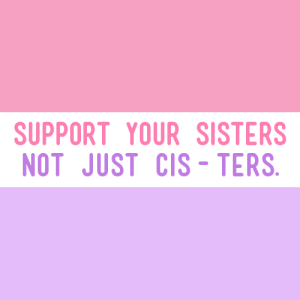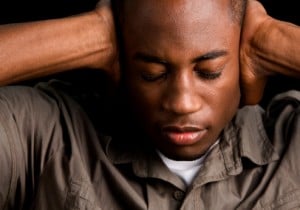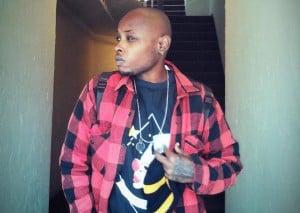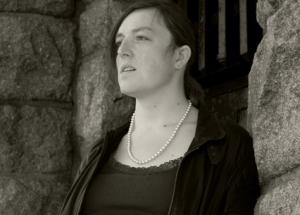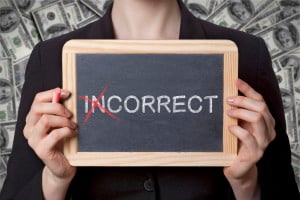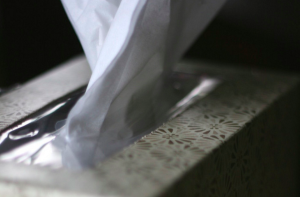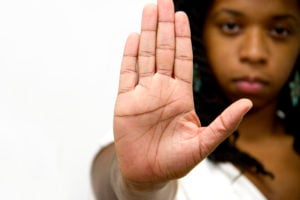Originally published on A True Testimony and republished here with the author’s permission.
I woke up this morning after a fitful and sweaty non-sleep to a Facebook feed of inspiration porn.
Three of the posts or memes ended with some variation on “What’s your excuse?”
My “excuse?” My Chiari, one of several neurological disabilities I have, is acting up, which means:
- my skull feels like it is trying to separate from the dura mater
- crushing pain in the back of my neck
- poor coordination (I dropped a glass from lack of coordination. A shard embedded in my foot, and I actually walked off with my foot bleeding and forgot –at that very moment–what had happened. My husband came home and found the glass, which he cleaned up. Which leads to the next symptom…)
- brain fog
- somnolence
- dizziness and syncope
- word-finding issues, which seem a bit better this morning, although this post has taken 2 1/2 hours (I’m on the same sentence in the book-in-progress that I was on several days ago, and I am not kidding. It is not “writer’s block,” so please don’t say I know how that feels. Unless you have experienced forgetting your formidable vocabulary and fighting against your own brain to retrieve words that you know you know, then nope. You don’t actually know how it feels.)
- severe anxiety
I guess I didn’t try hard enough, though, huh?
Some of these posts and memes came from people l consider(ed) trusted friends, but once disabled people become their inspiration porn, trust evaporates.
Why?
People with disabilities are not here to inspire able people or make them feel good about themselves.
Inspiration porn not only objectifies people with disabilities by turning them into magic talismans, but it erases the very real issues many of us experience – issues for which nobody is offering accommodations, I might add, or for which there might not be an easy solution.
I don’t have an “excuse.” I have multiple neurological disabilities (epilepsy, Chiari, PTSD, bipolar) that aren’t “fixable,” and I can’t always get work done, try as I might.
When I have a seizure, I am out, asleep, in bed for days. I can’t find words. I can’t function emotionally. Light hurts.
There is literally nothing physically or mentally I can do to make those symptoms go away, so I can inspire you all with my incredible achievements. But I guess—you know—I have no “excuse” because someone else out there with another disability overcame and achieved “in spite” of everything.
Inspiration porn operates from several assumptions, the key ones being:
1. That any time disabled people do anything “normal” people can do, it’s totally amazing, like our lives are so horrible and difficult and awful that any achievement is a shock (even as the memes or posts fail to acknowledge disability rights and accommodations that would facilitate achievement)
2. That all of us could “overcome” if only we tried harder! And if we fail to overcome, well then, it is all our fault. Even when some of the reasons we might fail involve able people creating barriers.
3. Exceptionalism as a “standard”: This guy is an inspiration because he’s exceptional, but he should be the “norm.” Which takes us back to #2.
Those assumptions are false taken on their own and wildly nonsensical taken together, which reveals the absurdity and objectification at the heart of inspiration porn.
I was an athlete once. I ran distance track. Want to know what happened when I had a seizure during a race? I recovered, only to find my coach scolding me.
“Have some pride,” she said. “Cougars do not fall down on the track.”
I guess I should have willed that seizure not to happen, huh?
Because it’s my job to make able people gawk with amazement and wonder at my incredible athletic prowess in spite of electrical charges taking over my brain!
Fuck that.
How many people who post these memes have actually spoken up on behalf of disability rights?
Oh, that’s right, I forgot: Inspiration porn is not about helping disabled people; it’s about inspiring able people. Because—you know—able people need so much help in this world, and disabled people are responsible for dishing it up.
How many of the people posting the “What’s your Excuse” bullshit are reading authors with disabilities? Sharing their work? Promoting their work? Clamoring for disabled athletes to get sponsorships? Signing petitions to get more accessibility to events? Standing up for disabled people when they see assholes on social media tearing them down?
Oh, they aren’t?
The other fucked-up thing? I am dealing with some difficult shit to write my book, but because my disabilities are not visible, not dramatic in a way that people give a shit about, not “readable” in a cute little meme, not something people want to accommodate at their conferences, not something they even want to hear about, I might not get to publish my book.
No, this does not mean I am giving up or that I refuse to overcome. I am speaking here about the bigoted, fucked-up, ableist reality of the lit world and the way inspiration porn perpetuates it.
Agents have actually said things to me like, “I don’t know if you can handle having a book” or “I don’t know if you can promote a book.” They mean because of my epilepsy, bipolar, and PTSD. Probably my Chiari, too, if they ever bothered to learn about it.
They typically see me as some kind of magic epileptic “rain man” genius (their word, not mine), which is a form of inspiration porn.
And yet! The subtext of what they say to me is: “I am not going to let you ‘overcome’ because you are not overcoming in the way I want you to.”
They want me “fixed” in a very specific way – and that’s a big, fat, fucking nope.
They wrap it up in paternalism. They want me to think I can’t handle telling my story.
In reality, they can’t handle me telling my story. They’re attracted to it for all the same reasons that terrify them, but they want to maintain this ableist monopoly on “overcoming.”
How many friends have emailed me privately to say an essay of mine blew their minds, but then they don’t share the link on Facebook, even though they typically share links? I guess they don’t want to be associated with that “quirky” way I think, huh? Or they don’t invite me to readings.
I have never, not once, been invited to read at any event, and believe me, I know plenty of people in charge of readings. Not once. I have watched as friends with far fewer publication credits and honors or awards get invited to read, but not me.
And what’s the difference? They’re abled.
Likewise with academic positions.
Want to guess why I was shut out of writing groups in the past? Take a wild guess. It’s a “pain” to have to provide transportation for me.
Every inspiration porn post makes it that much harder for me to operate in the literary world, because now if I have bad days, it’s some kind of “excuse.”
And not only that, but because friends have shared examples of disabled people “overcoming,” well, then, there’s no ableism in lit! I am wrong about the barriers and discrimination I face daily. I’m just whining. I am using my disabilities as an “excuse.”
You know what people with disabilities are really “overcoming?” Wanna take a guess? It’s not our bodies. It’s not our screwed-up brain wiring. It’s not pain or wheelchairs or deafness or blindness.
We are overcoming able people.
The ones who keep us out of your fucking conferences and out of your writing groups and readings and magazines. And that’s a fucking fact.
[do_widget id=’text-101′]
Karrie Higgins is a writer, ink-maker, forger, psychogeographer, performance artist, and rebel theologian without a faith living in Salt Lake City, Utah. She is at work on “Superman is my Temple Recommend,” a grimoire/environmental memoir about the nexus between magic, forensics, and faith. Her essays can be found in Black Clock, Quarter After Eight, Full Grown People, the Cincinnati Review, DIAGRAM, Western Humanities Review, and The Manifest-Station. She has “notable” essays in Best American Essays 2014 & 2015.
Search our 3000+ articles!
Read our articles about:
Our online racial justice training
Used by hundreds of universities, non-profits, and businesses.
Click to learn more






